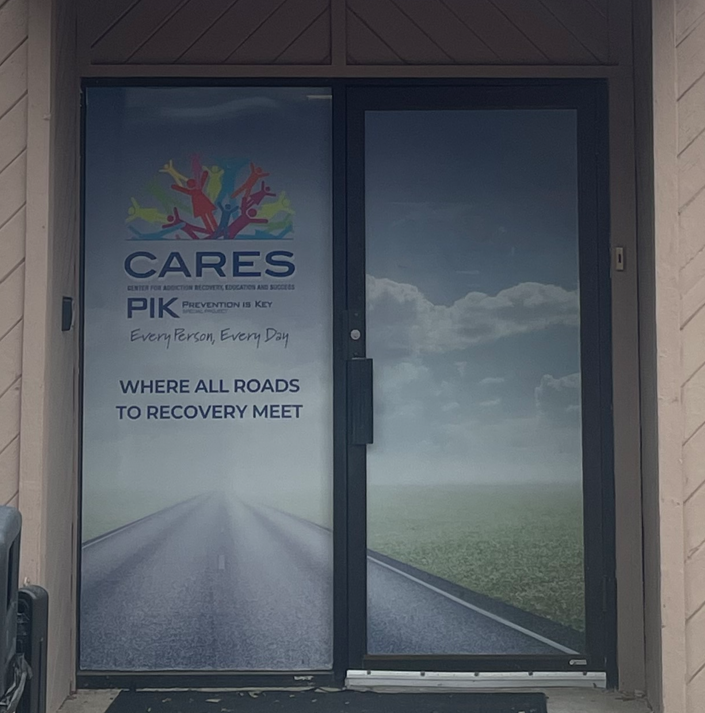Morris County Prevention is Key (MCPIK)

Overview
Morris County Prevention is Key (MCPIK) is a substance abuse treatment center for people seeking treatment near Morris County. As part of their treatment modalities for recovery, Morris County Prevention is Key (MCPIK) provides group counseling during treatment. Morris County Prevention is Key (MCPIK) is located in Rockaway, New Jersey, accepting cash or self-payment for treatment.
Morris County Prevention is Key (MCPIK) at a Glance
Payment Options
- Cash or self-payment
- Per session
Assessments
- Comprehensive substance use assessment
Age Groups
- Children/adolescents
- Young adults
- Adults
Operation
- Private non-profit organization
Treatment At Morris County Prevention is Key (MCPIK)

Conditions Treated
Alcoholism:
Alcohol addiction is a disease that changes the way the brain works. It causes negative emotions, impulsive behavior, cravings and withdrawal symptoms. Treatment for alcohol addiction includes supervised detox, counseling and therapy, and support group participation. Rehabilitation does not cure alcoholism. Instead, it helps the individual manage their addiction, restore their functioning, and well-being.
Opioid Addiction:
Opioid rehabilitation centers are dedicated to assisting individuals on the path to recovery from opioid addiction. They provide specialized care for those struggling with addiction to substances like heroin and prescription opioids such as oxycodone. These facilities offer a comprehensive approach, including medical detoxification, ongoing medical assistance (including medication-based treatment), and therapeutic support to address the root causes of addiction.
Substance use treatment:
Substance abuse treatment programs can help to address addiction and, if relevant, any co-occurring mental health conditions. Programs include outpatient, inpatient, dual-diagnosis, and partial hospitalization. The addict will receive therapies like cognitive behavioral therapy, or dialectical behavioral therapy, and sometimes complementary therapies like acupuncture and mindfulness-based therapy. By attending skills training and recovery groups you’ll build a strong foundation for your recovery and strengthen your support network, increasing your chances of long-term recovery success.

Levels Of Care
Detoxification:
Detoxification, often called detox, is like a reset button for the body after someone has been using drugs or alcohol. Its main job is to help people who want to quit these substances by easing the discomfort they might feel when they stop. Think of it as a way to clean out the harmful stuff in the body when someone has been using drugs or alcohol too much. Detoxification aims to make the process of quitting safer and less painful for the person.
Aftercare:
Finishing a drug or alcohol rehab program is not the conclusion of substance abuse treatment but rather a pivotal step toward long-term recovery. Aftercare encompasses devising a sustainable recovery plan coupled with enduring support. It may include sober living environments such as halfway houses, career counseling, and connecting patients with community support programs like Alcoholics Anonymous (AA) or Narcotics Anonymous (NA). This holistic approach ensures a smooth transition into a substance-free life while bolstering resilience against relapse.
Outpatient:
Outpatient programs are designed for individuals in stable medical condition with a low risk of relapse, often those who've completed inpatient treatment. These programs extend the foundation of prior treatment approaches, offering continuous addiction guidance and resources for sustained recovery. For those transitioning straight from detox, medical and psychological assessments are typically conducted, leading to the development of individualized treatment strategies. The majority of outpatient rehab centers provide diverse care levels, customized to each client's unique requirements.

Treatment Modalities
Group counseling:
Group Counseling is a therapeutic approach where individuals come together under the guidance of a trained counselor to share experiences, offer support, and gain insights. This collective format promotes mutual understanding and growth, allowing participants to learn from one another's perspectives and challenges.
Family counseling:
Family Counseling is a therapeutic approach that seeks to address and improve communication, understanding, and dynamics within a family unit. By addressing conflicts, emotional distress, and behavioral challenges, a trained therapist provides guidance and tools for family members to strengthen bonds, resolve issues, and foster a healthier family environment.
Life Skills:
Life skills training equips individuals with essential competencies, such as time management, career planning, financial literacy, and effective communication, to navigate the challenges of daily life. These skills are foundational to achieving not just sobriety but a thriving, fulfilling life post-addiction. Such training lays the groundwork for sustainable success and long-term recovery.
Contact Information
DISCLAIMER: The facility name, logo and brand are the property and registered trademarks of Morris County Prevention is Key (MCPIK), and are being used for identification and informational purposes only. Use of these names, logos and brands shall not imply endorsement. BetterAddictionCare.com is not affiliated with or sponsored by Morris County Prevention is Key (MCPIK).

